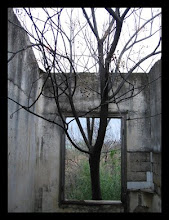An Important Diversion from My Usual: A Bit of L.A. History
Tis a summer of anniversaries, as the Catharine Chronicles have reminded us of late – especially here in the City of Angels.
Today marks the 40-year anniversary of the 1965 Watts riot.
On August 11, 1965, "the Endless Summer of the avant garde ended abruptly" when what started as a routine traffic stop escalated into a five day riot that left 1000 people injured and 34 dead. It started when a Los Angeles police officer flagged down motorist Marquette Frye, "whom he suspected of being intoxicated". When a crowd of onlookers, tired and frustrated by what seemed to be yet another racially motivated harassment, began to taunt the policeman, a second officer was called in. "According to eyewitness accounts, the second officer struck crowd members with his baton, and news of the act of police brutality soon spread throughout the neighborhood. The incident, combined with escalating racial tensions, overcrowding in the neighborhood, and a summer heat wave, sparked violence on a massive scale. Despite attempts the following day aimed at quelling antipolice sentiment, residents began looting and burning local stores". An estimated $200 million in property was damaged and/or destroyed.
"Although city officials initially blamed outside agitators for the insurrection, subsequent studies showed that the majority of participants had lived in Watts all their lives...
The Watts Riot was the first major lesson for American public on the tinderbox volatility of segregated inner-city neighborhoods. The riot provided a sobering preview of the violent urban uprisings of the late 1960s and helped define several hardcore political camps: militant blacks applauded the spectacle of rage; moderates lamented the riot's senselessness and self-destructiveness; and conservative whites viewed the uprising as a symptom of the aggressive pace of civil rights legislation.
The Watts Riot changed California's political landscape and damaged a number of political careers, including that of Governor Pat Brown. The liberal Brown lost his office to challenger Ronald Reagan, in part because Reagan was able to successfully pin the blame on the incumbent for the riot."
It was of course, neither the first conflict between minorities and the police, nor the last.
Sources: Eric Bennett: Encarta, Mike Davis, "City of Quartz"



7 Comments:
funny; I was just thinking about the summer of Sam, in New York, 1977, just about this time. When the blackout occurred and it was the nearest thing we had to a race riot, until a stupid killing some years later also in late summer
Glad that you're back blogging
What is it about late summer and November that makes men want to kill. Ridiculous. Thanks for the Book reccomendation. I'm knee deep in it now and laughing my ass off. Can't believe I haven't heard of it by now! Go get yourself some Sweet Potato Queens. Start with the first book and work your way thru. It will definately sooth.
Not only that it will soothe. Spelling is crap today.
Jeez - and I thought The Handmaid's Tale was frightening - not to mention the way the country is going, looks like a certain percentage of the population would like to see it that way...I'll have to add that to my read list.
I was gonna say "happy anniversary," but that would be perverse.
I remember that all to well and vividly. Even I have to admit a little shock as to how many years it had been though! ;)
I have since corrected Catharine's name, since I am a loser speller.
Post a Comment
<< Home